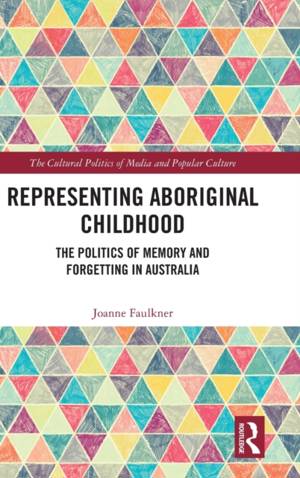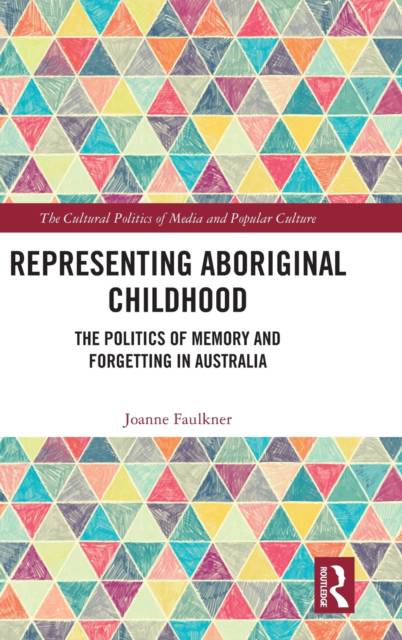
- Afhalen na 1 uur in een winkel met voorraad
- Gratis thuislevering in België vanaf € 30
- Ruim aanbod met 7 miljoen producten
- Afhalen na 1 uur in een winkel met voorraad
- Gratis thuislevering in België vanaf € 30
- Ruim aanbod met 7 miljoen producten
Representing Aboriginal Childhood
The Politics of Memory and Forgetting in Australia
Joanne FaulknerOmschrijving
This book critically investigates the ways in which Aboriginal children and childhood figure in Australia's cultural life to mediate Australians' ambivalence about the colonial origins of the nation, as well as its possible post-colonial futures. Engaging with representations in literature, film, governmental discourse, and news and infotainment media, it shows how ways of representing Aboriginal children and childhood serve a national project of representing settler-Australian values, through the forgetting of colonial violence. Analysing the ways in which certain negative aspects of Australian nationhood are concealed, rendered invisible, and repressed through practices of representing Aboriginal children and childhood, it challenges accepted 'shared understandings' regarding Australian-ness and settler-colonial sovereignty.
Through an innovative interdisciplinary approach that engages critical theory, post-colonial theory, literary studies, history, psychoanalysis, and philosophy, Representing Aboriginal Childhood responds to urgent questions that pivot on the role of the Indigenous child within settler nation-state formations. As such, it will appeal to scholars of sociology and social geography, collective memory, politics and cultural studies.
Specificaties
Betrokkenen
- Auteur(s):
- Uitgeverij:
Inhoud
- Aantal bladzijden:
- 230
- Taal:
- Engels
- Reeks:
Eigenschappen
- Productcode (EAN):
- 9780367568535
- Verschijningsdatum:
- 28/02/2023
- Uitvoering:
- Hardcover
- Formaat:
- Genaaid
- Afmetingen:
- 156 mm x 234 mm
- Gewicht:
- 512 g

Alleen bij Standaard Boekhandel
Beoordelingen
We publiceren alleen reviews die voldoen aan de voorwaarden voor reviews. Bekijk onze voorwaarden voor reviews.











